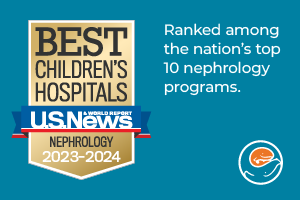Refer a Patient
For our most current wait times by specialty and location, see our Access Dashboard.
How to Refer a Patient
If you are unsure about whether to refer your patient, please call our clinical intake nurses at 206-987-2080, option 4.
Appointment availability
Updated November 2023.
We are accepting new referrals. The wait time for new patients is about 2 months.
Referral requirements
 Please submit a referral that is complete. This helps us schedule your patient’s appointment in a timely manner and ensure their first visit is smooth and productive.
Please submit a referral that is complete. This helps us schedule your patient’s appointment in a timely manner and ensure their first visit is smooth and productive.
Incomplete referral information may delay scheduling of the appointment.
Please include:
- Reason for referral: what is the clinical question for the specialist?
- If the referral is urgent (see within 4 weeks) or routine (next available)
- ICD-10 Diagnosis – required
- Visit type:
- New patient consult, transfer of care, second opinion, or return visit/ongoing care
- ALL relevant clinical documents
- Clinic notes
- Medication history
- Growth charts/curves
- Lab reports
- Imaging and diagnostic reports
- Previous specialty evaluations
- Patient’s full name, DOB, sex, address, guardian contact information and insurance
- Referring provider’s name, phone, fax and the referral coordinator’s email address so that we may contact you if additional information is needed
- Preferred clinic location
- If an interpreter is needed
- Any known barriers to performing a successful telehealth (video) visit with the family
- Renal ultrasound with report
Please note:
- We do not see patients with recurring UTI or incontinence/bedwetting (enuresis). Resources to help PCPs manage these patients will be available soon on our Urology “Refer a Patient” page.
- Patients need a new referral if they have not been seen in Nephrology in the last three years.
- We see new patients ages 0 to 17 for hypertension and new patients through age 20 for other diagnoses.
If you are referring a patient for any of the following conditions, please first review these guidelines:
- Abnormal kidney function
- Hematuria (including hematuria with proteinuria)
- Hypertension
- Nephrotic syndrome
- Proteinuria
Submit a referral
New Appointment Request Form (PDF) (DOC)
Step-by-step guide to submitting a referral
Pease call our clinical intake nurses if you need assistance: 206-987-2080, option 4.
Provider-to-Provider Communication
- For urgent clinical questions, defined as a clinical question that requires immediate attention due to its potential impact on patient health or safety but is not life-threatening, call our Provider-to-Provider line at 206-987-7777 or 877-985-4637 (toll-free) to speak to our on-call nephrologist.
- If you are directing or transporting a patient to the Emergency Department or Urgent Care, please call Mission Control at 206-987-8899 or 866-987-8899 (toll-free).
- For non-urgent clinical questions, please consider submitting an eConsult. (Providers outside the state of Washington do not have access to eConsults and may call the Provider-to-Provider line and indicate they have a non-urgent clinical question for our on-call nephrologist.)
- For co-management questions related to an existing problem for a shared patient, please send an InBasket message via EpicCare Link.
- If you would like to have one of our Nephrology team members provide in-person or virtual education with your clinic, please contact our Physician Relations team to coordinate.
What Your Patients Can Expect
- Once we receive your referral, your patient will be in our queue to review and schedule.
- Families may call 206-987-2524 to schedule an appointment.
- We review openings and the patient referral queue routinely.
-
Resources and research for families
Families looking for information about bed wetting/incontinence/enuresis or recurring UTI may benefit from visiting our Urology Division’s Patient and Family Resources page.
Resources for other conditions are available on Nephrology's Patient and Family Resource page.
Resources for Providers
- Abnormal kidney function
- Hematuria (including hematuria with proteinuria)
- Hypertension
- Nephrotic syndrome
- Proteinuria
- Common Structural Kidney Anomalies Detected on Imaging: What to Tell Your Families
- Hydronephrosis
- Horseshoe kidney
- Isolated (simple) renal cysts
- Kidney or renal asymmetry
- Duplicated collecting system (duplex kidney)
To suggest additional resources from Seattle Children's that would be useful for primary providers, please email us.